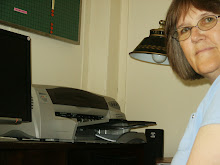
"Let's Honor Thaddeus Stevens In Our Statehouse"
By Sharon Lakey
On January 10, Howard Coffin rose to expectant applause after the first annual meeting of the Danville Historical Society held at the newly-renovated Historical House. Coffin, a well-known writer on Vermont and the Civil War, had been in Danville during the summer, speaking on what he called "a magical night at the Old North Church." His presence was also an appropriate precursor of the coming sesquicentennial (150 years) celebration and remembrance of the War between the States, which will begin in 2011.
He held a sheaf of papers in his hand when he approached the lectern and, with the light from the fireplace behind him, began to speak about the sacrifices the small town of Danville made during America's Civil War. "According to Keegan, author of the most recent book I've read on the Civil War," said Coffin, "it was the third bloodiest war per capita ever fought in the world." The sheaf of papers in his hand were of some of the 194 individuals from Danville who had served, and he began a slow march through them. The papers were statements of fact, leaving the listeners to fill in gaps with the aching human story that went with every one of them.
The listing began with Danville's most famous soldier, Addison Preston. "A man whose body the infamous Custer leaned over on the battlefield and said, 'there lies the best fighting Colonel in the Cavalry Corps,'" said Coffin. Preston's widow would not allow a military funeral, but the local funeral procession included many from afar and stretched from the Village center to the grave site. Name after name Coffin read aloud from his pages, many of them surnames you still hear today in Danville. One of the most memorable facts for this listener was about a young man from West Danville whose death upon returning home was attributed to eating too much. He had just been released from Andersonville. That prisoner-of-war camp was often mentioned on the pages he held. Of the 44,000 Union soldiers held there for less than a year, 13,000 died, most from starvation and disease.
For 47 years, a week a year, Coffin has visited America's Civil War sites. "Remarkable things happen when you search for history at those places," said Coffin, and he shared a few of them with the audience. He walked the path of Pickett's charge at Gettysburg and just as he reached Cemetery Ridge, where the southern line met a blistering northern barrage, a thunderstrom arose and showered Coffin with hail the size of musket balls. Another time, he stood gazing up at Little Round Top, where the 20th Maine under Chamberlain saved the union line from breaking by mounting a heroic bayonet charge downslope. "Suddenly hundreds of lights appeared," said Coffin, "and in waves they came down the slopes. On the flat, they swirled around me before disappearing--fireflies!" And on the night of May 2, 1988, he walked the hills where Stonewall Jackson battled to rejoin the Union army. "A full moon rose and I heard the haunting sound of whippoorwills, the same sound Confederate soldiers wrote back home had made them so homesick." On a walk up Chin Ridge, "I saw a mental image of a Confederate soldier pass me, so vivid that I still see his face today, disgusted at the failure of the second battle of Bull Run."
At this point, Coffin seemed to switch topics, but assured us, "don't worry, I'm going to tie this together." He then began speaking with emotion about Thaddeus Stevens, who was born in Danville, graduated from Peacham Academy and attended the University of Vermont for two years before transferring to Dartmouth. "You never know where you're going to find Bethlehem," he said. "From humble beginnings arose this man, in truth, who dwarfs all the Civil War heroes."
This summer, Mary Prior escorted him along the Thaddeus Stevens trail, including a possible cellar hole of the place of his birth. "He was reverent there", shared Mary. "It can be argued," said Coffin, "that Stevens rivaled Lincoln." He is credited for the drafting and dogged determination to pass the 13th, 14th and 15th amendments to the Constitution during Reconstruction. These amendments guaranteed equality for all American citizens under the law.
"He was a man before his time," said Coffin. And then he laid before the audience a challenge. "We have a golden opportunity here, and I throw it out to you today. There is no sculpture or portrait of Stevens, one of our native sons, in our Statehouse. Why not?"
After the meeting, a light supper was served, and much interest was generated by displays that included artifacts of Addison Preston's, most of them passed down to the Historical Society by Preston's widow. Coffin stayed as well, and many were able to shake his hand in thanks and share thoughts on how Thaddeus Stevens might best be honored.
This writer was able to tell him how much she enjoyed hearing about the strange events he had experienced while stalking history. "There are many more," he confided quietly. "Some of them are so strange, I don't repeat them. People might think I'm crazy." When pressed, he shared just one more. Someday, if you have the chance to speak with Howard Coffin, ask him about the time he saw John Brown on a lonely, wintry Vermont highway.
This article was first published in the February, 2010 issue of The North Star Monthly
For more pictures of the Danville Historical Society annual meeting, click here.
